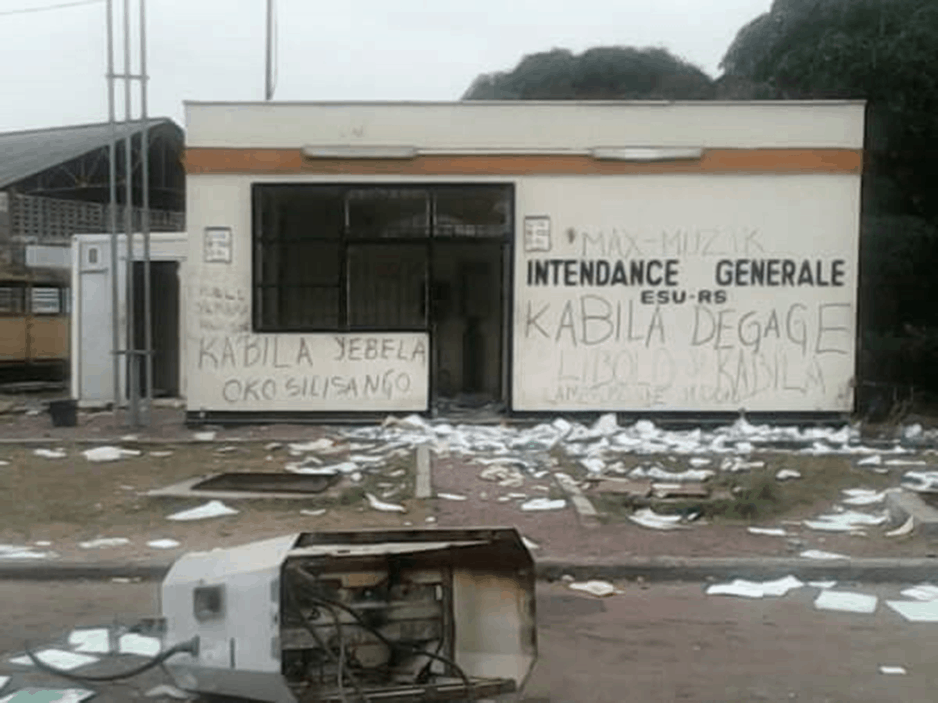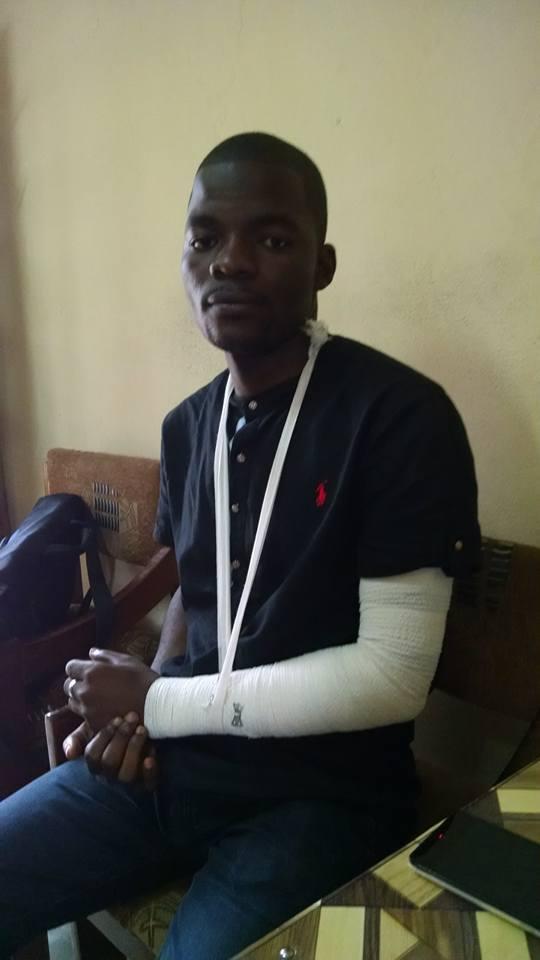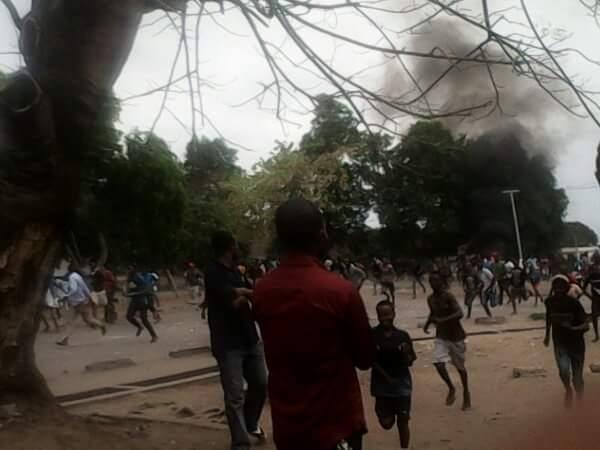Blog by: Munor Kabondo, DRC
Kinshasa, the capital of the Democratic Republic of Congo (DRC), was at the centre of the violence that erupted on September 19th, 2016. The clashes took place between law enforcement agents and opposition activists who were demanding for a presidential election to take place by the end of 2016, as called for in the DRC’s constitution.

The University of Kinshasa Campus after the violent clashes. Photo by Jean Shotsha, a member of the JHR/DRC student press club.
Media caught in the crosshairs
The media was not spared from the violent demonstrations. While on their search for information, law enforcement agents vandalised the property and physically assaulted a number of journalists and media professionals.
Journalistes en Danger (JED), a local organisation defending the rights of journalists in the DRC, estimated that 10 journalists were abused, attacked, or arrested in Kinshasa during the clashes. Law enforcements agents, including police officers and agents of the intelligence service, were among the perpetrators of these acts against the media.
“Congolese media face a number of obstacles in order to respond favorably to their duty of informing the public, especially in this election period, which is a defining moment in the political history of our country.” Explained Mayus Mayonde, Vice President of the National Club of Journalists for Human Rights and a journalist with the newspaper La Nouvelle République. “Despite all that we face, we must also acknowledge the bravery of many of the journalists of our country, especially those belonging to our National Club of Journalists for Human Rights.”
Victims in the press
Kevin Inana was a victim of these atrocities, “I am deeply disappointed by the manner with which I was treated by those who are supposed to protect the population.”. While working on behalf of the newspaper La Prospérité in Kinshasa, Inana was arrested when he tried to escape some riot police and received blows to his head and body, despite him having announced himself as a journalist. “All I had were my phones and my hands to perform my work. Furthermore, my press card, which was exhibited, but it held no value in their eyes,” he said.

Kevin Inana, journalist at the daily La Prospérité in Kinshasa, a few hours after having been attacked by law enforcements agents on September 19th, 2016.
On the same day, another arrest was reported where the demonstrations were taking place. Dosta Lutula, a journalist with Canal Congo Television (CCTV), an opposition connected television channel that broadcasts in Kinshasa, was arrested by unidentified law enforcement officers while covering the opposition’s protest. According to JED, “the journalist was taken to Tshatshi military camp where he was copiously beaten before being transferred at one in the morning to Camp Kokolo, where he was further abused and undressed”. It was around six pm the next day that the journalist was released. His equipment was confiscated by the perpetrators.
Four international journalists were also arrested by Military Police on the morning of Monday September 19th, 2016. These journalists were detained for several hours at the Kokolo military camp. They included TV 5 journalists Dady Songhozo and John Kinkendu, Radio France Internationale’s (RFI) special correspondent in DRC Sonia Rolley, and Agence France-Presse reporter and photographer Eduardo Soteras. JED states that, “they were manhandled and taken to Kokolo camp where they were kept for several hours and stripped of all their belongings, including their work equipment, money, and phones.”

Students during a stampede at the University of Kinshasa on September 20th, 2016. Taken by Jean Shotsha, student and member of the JHR/DRC student press club.
The National Club of Journalists for Human Rights was established in July 2016 by journalists that had attended the national forum organized by Journalists for Human Rights (JHR), in collaboration with the Canadian Embassy in the DRC. The clubs mission is the promote human rights and educate people about their rights through the media


